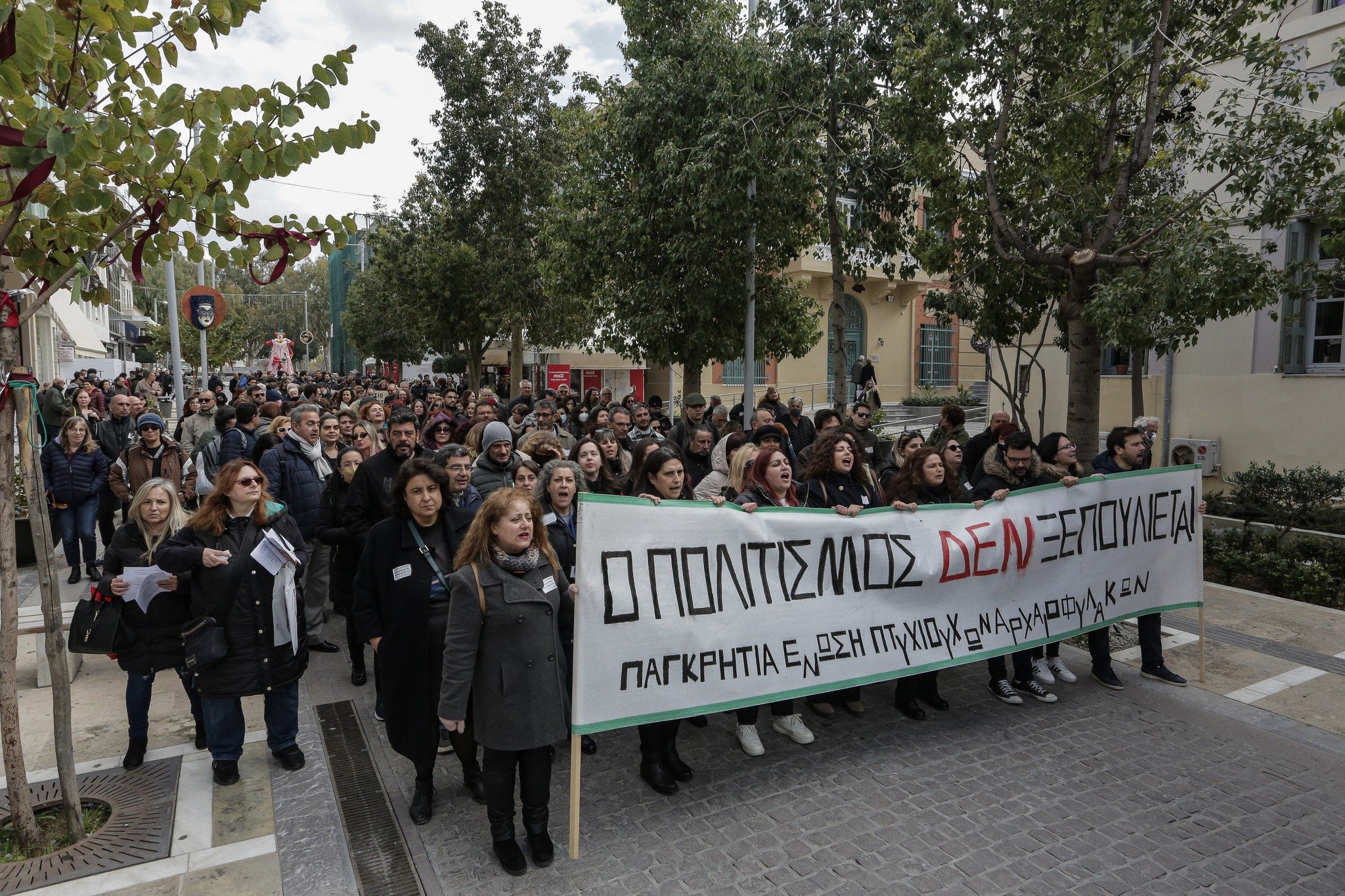
A handful of high-profile museums in Greece have closed to the public in recent days as employees protest a controversial new law.
The bill, introduced last month by the Greek Ministry of Culture and Sports and approved by Parliament on February 13, designates five of the country’s largest archaeological museums as legal entities under public law. With the change, the institutions in question will no longer be overseen by the culture ministry and will instead operate semi-autonomously under government-appointed boards.
Though the law ostensibly gives the museums more power, opponents say it will do the opposite, establishing an oligarchical power structure.
The National Archaeological Museum, the Archaeological Museum of Thessaloniki, the Archaeological Museum of Heraklion, the Byzantine and Christian Museum, and the Museum of Byzantine Culture are the institutions impacted by the bill. All five closed Monday as employees and others participated in a series of protests organized by the Association of Greek Archaeologists.
More than 1,000 workers also marched before Parliament on Monday as the bill was being debated, according to the group, whose members continued striking Tuesday and Wednesday.
“The cultural heritage is our common property, we do not give it to the ‘elite’ of the respective government,” the association said in a statement this week. “Public Museums belong to all of us.”
Since its introduction earlier this month, the new law has been at the center of a fierce political debate. Members of Greece’s left-wing Syriza party, including its head, former Prime Minister Alexis Tsipras, have been particularly vocal in their opposition to the legislation, which also includes a provision that would allow pieces of Greek heritage to remain abroad on long-term loans.
Critics say the clause could threaten Greece’s ongoing efforts to have the Parthenon Marbles repatriated from England.
“Once again, culture and the people of culture are under persecution,” Tsipras said recently.
Lina Mendoni, head of the culture ministry, has persistently defended the law since it was announced by her agency. “Modernization is not a phase or a stage of development. It is an ongoing social process,” she said in a speech this week. “After 150 years we dare to make changes.”
As for the bill’s potential impact on the Parthenon Marbles, Mendoni said, “I will repeat for the umpteenth time: The position of the Greek Government regarding the Parthenon Sculptures is that it does not recognize jurisdiction, possession. and ownership in the British Museum.” The state, she went on, “considers them stolen goods.”